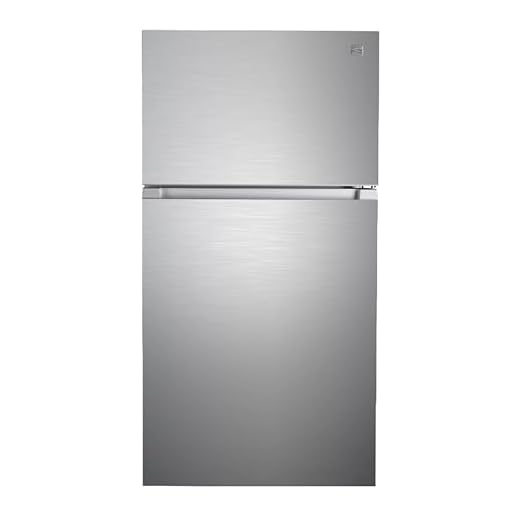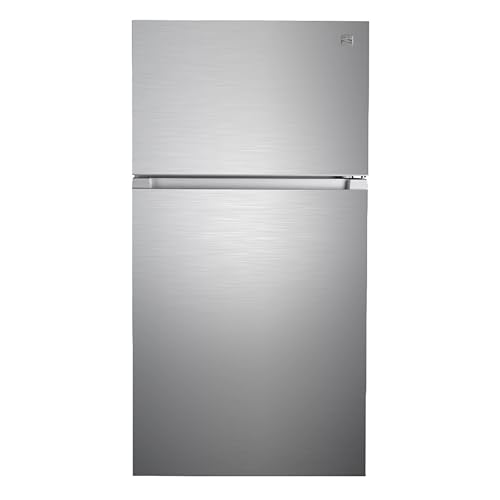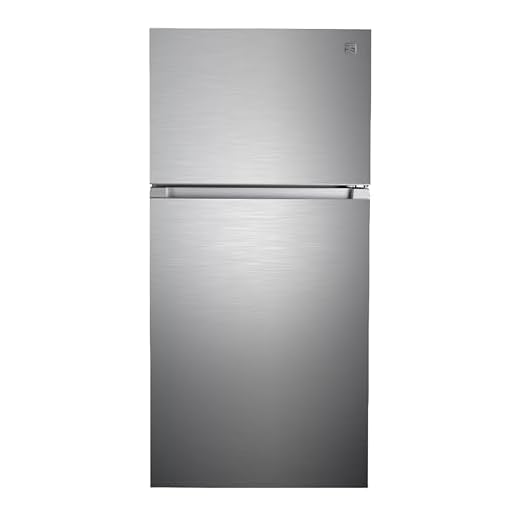



When it comes to household appliances, one of the biggest offenders in terms of energy consumption is the refrigerator. And if you have an old refrigerator, chances are it’s using a lot of electricity.
Old refrigerators are notorious for being energy guzzlers. With outdated technology and inefficient insulation, these appliances can put a serious dent in your energy bill. It’s estimated that refrigerators over 10 years old can consume up to four times more electricity than newer models.
One of the main reasons why old refrigerators use so much electricity is their lack of energy-saving features. Unlike modern refrigerators, which come equipped with technologies like automatic defrost and adjustable temperature controls, old fridges often operate at a constant temperature and require manual defrosting. This means that they’re constantly running at full power, consuming unnecessary energy.
Furthermore, old refrigerators tend to have poor insulation, which leads to temperature leakage. This forces the appliance to work harder to maintain a consistent temperature, resulting in increased energy consumption. Additionally, the rubber seals on the doors of old refrigerators can wear out over time, allowing cold air to escape and warm air to enter the fridge, further contributing to energy waste.
In conclusion, if you’re still using an old refrigerator, it’s likely using a significant amount of electricity. Upgrading to a newer, more energy-efficient model can not only save you money on your energy bill but also help reduce your carbon footprint. The investment in a new refrigerator will pay off in the long run, both financially and environmentally.
Are Old Refrigerators Energy-Efficient?
Old refrigerators are generally not considered energy-efficient. They were manufactured before the introduction of modern energy-saving technologies and standards. These older models tend to consume more electricity compared to their newer counterparts.
There are several factors that contribute to the higher energy consumption of old refrigerators:
- Insulation: Older refrigerators often have inadequate insulation, which results in more heat exchange between the inside and outside of the appliance. This requires the compressor to work harder and consume more energy.
- Compressor Technology: Old refrigerators usually have less efficient compressor technology. The compressor is responsible for cooling the refrigerator, and older models tend to have larger and less efficient compressors.
- Temperature Control: Older refrigerators may not have precise temperature control mechanisms. This can lead to excessive cooling and energy waste.
- Additional Features: Newer refrigerators are equipped with energy-saving features such as automatic defrosting and energy-efficient lighting. These features are often absent in older models.
It is important to note that energy efficiency standards have improved significantly over the years. New refrigerators are designed to meet strict energy efficiency regulations, resulting in lower electricity consumption and reduced environmental impact.
If you have an old refrigerator, it may be worth considering upgrading to a newer, more energy-efficient model. This can help reduce your electricity bills and contribute to a greener environment.
Old Appliances and Electricity Usage
Old appliances, such as refrigerators, can consume a significant amount of electricity compared to newer models. This is primarily due to the outdated technology and lack of energy-efficient features in older appliances.
One of the main factors that contribute to the high electricity usage of old refrigerators is their insulation. Over time, the insulation in the refrigerator’s walls may deteriorate, leading to heat leakage and increased energy consumption. Additionally, the seals around the doors may become worn out, causing cold air to escape and warm air to enter, further decreasing the appliance’s efficiency.
Another factor is the use of outdated cooling systems, such as mechanical compressors. These compressors are less efficient compared to newer models that utilize advanced technologies like variable-speed compressors. The constant cycling of the compressor in old refrigerators leads to higher energy consumption.
Furthermore, older refrigerators typically lack features like automatic defrosting, which requires the appliance to be manually defrosted periodically. The build-up of ice inside the freezer can insulate the cooling coils and make the refrigerator work harder to maintain the desired temperature, thereby increasing energy usage.
It is important to note that the energy usage of old appliances can vary depending on the make and model. Some older appliances may have energy-saving features that can help reduce electricity consumption. However, in general, it is safe to assume that old refrigerators tend to use more electricity compared to newer, energy-efficient models.
To save on electricity bills and reduce energy waste, it is recommended to upgrade to a newer refrigerator that is ENERGY STAR certified. These appliances are designed with advanced technologies to minimize energy consumption and operate more efficiently. Additionally, proper maintenance and regular inspections of the refrigerator’s insulation and seals can help improve its energy efficiency.
Energy Consumption of Old Refrigerators
Old refrigerators are known for their high energy consumption. These appliances were designed before energy efficiency standards were implemented, so they tend to use a lot of electricity compared to modern models. The energy consumption of old refrigerators can vary depending on factors such as the size, brand, and age of the appliance.
Factors Affecting Energy Consumption
The size of the refrigerator is an important factor in determining its energy consumption. Larger refrigerators generally use more energy because they require more power to cool a larger space. Additionally, older models may have less insulation and use more energy to maintain a consistent temperature.
The brand of the refrigerator can also impact its energy consumption. Some brands may have invested more in energy-saving technology, while others may not have prioritized energy efficiency in their design. It is important to research different brands and models to find one that offers the best energy efficiency.
Age and Efficiency
The age of a refrigerator is a significant factor in its energy consumption. Older models tend to be less energy-efficient because they were manufactured before energy efficiency standards were introduced. Over time, the efficiency of a refrigerator’s components can also deteriorate, resulting in higher energy consumption.
One way to determine the energy consumption of an old refrigerator is to check its Energy Star rating. This certification program rates appliances based on their energy efficiency. A higher Energy Star rating indicates a more energy-efficient appliance. However, it is important to note that this program was not introduced until the 1990s, so many older models will not have an Energy Star rating.
It is recommended to estimate the energy consumption of an old refrigerator by checking its wattage. The wattage can usually be found on a sticker inside the refrigerator or in the owner’s manual. By multiplying the wattage by the hours of daily use, an estimate of the daily energy consumption can be obtained.
Tips for Energy Efficiency
If you have an old refrigerator that is consuming a lot of electricity, there are a few steps you can take to improve its energy efficiency:
1. Adjust the temperature: Set the refrigerator at the recommended temperature (usually between 37-40°F or 3-5°C) and the freezer between 0-5°F or -17 to -15°C. This will ensure that the appliance is running efficiently without wasting excess energy.
2. Check the seals: Old refrigerator seals can become worn or damaged, resulting in air leaks and higher energy consumption. Check the seals regularly and replace them if necessary to improve energy efficiency.
3. Keep it full: A full refrigerator retains cold air better than an empty one. Consider filling empty space with water bottles or non-perishable items to minimize energy waste.
4. Reposition the refrigerator: Placement of the refrigerator can impact its energy consumption. Ensure that it is not placed near heat sources such as direct sunlight or ovens, as this can cause the appliance to work harder and consume more energy.
By considering these factors and taking steps to improve energy efficiency, it is possible to minimize the energy consumption of an old refrigerator and reduce electricity bills.
Cost of Running an Old Refrigerator
Old refrigerators can be energy-guzzlers, consuming a significant amount of electricity. This not only results in higher electricity bills but also contributes to environmental pollution.
Here are some factors to consider when assessing the cost of running an old refrigerator:
Energy Efficiency
Old refrigerators tend to have lower energy efficiency ratings compared to newer models. They often lack modern features and technologies that help save energy. As a result, they consume more electricity to maintain the desired temperature.
Size and Capacity
The size and capacity of a refrigerator also impact its energy consumption. Larger refrigerators require more electricity to cool and maintain the temperature of a larger space. If you have an old, oversized refrigerator, it will likely consume more electricity than necessary.
To estimate the energy cost of running an old refrigerator, you can use an energy consumption calculator provided by your local utility company. By inputting the refrigerator’s make, model, and age, the calculator can provide an estimate of the monthly or yearly electricity cost.
It’s important to note that the cost of running an old refrigerator can vary depending on factors such as local electricity rates and frequency of use. However, the overall trend is that older refrigerators tend to use more energy and cost more to run compared to their energy-efficient counterparts.
Consider Upgrading
If you find that your old refrigerator is consuming a lot of electricity, it may be worth considering upgrading to a newer, more energy-efficient model. While the upfront cost may be higher, the energy savings over time can offset the initial investment.
Furthermore, upgrading to a newer refrigerator can also provide additional benefits such as improved temperature control, better food preservation, and reduced environmental impact.
Tips for Reducing Energy Consumption
If upgrading is not feasible at the moment, here are some tips to help reduce the energy consumption of an old refrigerator:
- Ensure proper sealing of the refrigerator door to prevent cold air from escaping.
- Keep the refrigerator away from heat sources such as ovens and direct sunlight.
- Regularly clean the coils at the back of the refrigerator to improve efficiency.
- Avoid excessive opening and closing of the refrigerator door.
- Set the refrigerator temperature to the optimal level, not too cold or too warm.
By following these tips and considering upgrading to a more energy-efficient model, you can reduce the cost and environmental impact of running an old refrigerator.
Environmental Impact of Old Refrigerators
Old refrigerators have a significant environmental impact due to their energy consumption and the disposal process. These appliances are known to use a lot of electricity, contributing to greenhouse gas emissions and climate change.
Energy efficiency plays a crucial role in minimizing the environmental impact of refrigerators. Old refrigerators, which were manufactured before energy efficiency standards were implemented, often consume much more electricity compared to modern models. This excess energy consumption not only leads to higher electricity bills but also contributes to carbon dioxide emissions.
Additionally, the disposal of old refrigerators poses environmental challenges. These appliances contain certain hazardous materials such as chlorofluorocarbons (CFCs) and hydrochlorofluorocarbons (HCFCs), which are harmful to the ozone layer and have a significant impact on global warming. Properly disposing of old refrigerators ensures that these hazardous substances are not released into the environment.
When old refrigerators are not disposed of properly, they end up in landfills where they can release harmful substances and contribute to soil and water pollution. The insulation materials used in old refrigerators, such as polyurethane foam, can release toxic gases and chemicals into the environment when not properly managed.
To reduce the environmental impact of old refrigerators, it is important to consider a few options. Firstly, individuals can upgrade to more energy-efficient models that comply with modern energy efficiency standards. This can significantly reduce electricity consumption and lower carbon emissions.
Alternatively, recycling old refrigerators is a sustainable option as it allows for the proper disposal and recovery of valuable materials. Specialized recycling centers can safely remove and handle hazardous materials from old appliances, ensuring that they do not end up in landfills or harm the environment.
In conclusion, old refrigerators have a notable environmental impact due to their energy consumption and improper disposal. Being mindful of energy efficiency and opting for proper recycling methods can help reduce this impact and contribute to a more sustainable future.
Benefits of Upgrading to a New Refrigerator
Upgrading to a new refrigerator can bring several benefits, both in terms of energy efficiency and convenience. Here are some reasons why you should consider replacing your old refrigerator with a new one:
| Energy Efficiency |
New refrigerators are designed to be more energy-efficient compared to older models. They use advanced technologies, such as improved insulation and compressors, to reduce energy consumption. By upgrading, you can save on your electricity bill and contribute to a greener environment. |
| Lower Maintenance Costs |
Old refrigerators often require frequent repairs and maintenance, which can add up to significant costs over time. By upgrading to a new refrigerator, you can enjoy a warranty period with reduced or no repair costs, as well as lower maintenance expenses overall. |
| Enhanced Food Preservation |
New refrigerators come with improved temperature control, humidity management, and air filtration systems. These features help to keep your food fresher for longer periods, reducing food waste and ensuring a healthier diet for you and your family. |
| Modern Features and Design |
New refrigerators often come with advanced features, such as touchscreen displays, smart home integration, and flexible storage options. These additional functionalities enhance your overall kitchen experience and make it easier to organize and access your food and beverages. |
| Noise Reduction |
Old refrigerators can be noisy, especially as they age. Upgrading to a new refrigerator can significantly reduce the noise levels in your kitchen, providing a more peaceful and comfortable environment. |
Overall, upgrading to a new refrigerator is a wise investment that can lead to long-term savings, improved food preservation, and a better overall kitchen experience.
FAQ
Do old refrigerators consume more electricity than new models?
Yes, old refrigerators generally use more electricity compared to new models. This is because older refrigerators are typically less energy-efficient and lack modern technologies to regulate temperature and save energy.
How much electricity do old refrigerators consume?
Old refrigerators can consume a significant amount of electricity. On average, they consume about 1000-2000 kilowatt-hours (kWh) per year. However, this can vary depending on the specific model, size, and age of the refrigerator.
What are the reasons behind old refrigerators using a lot of electricity?
There are several reasons why old refrigerators use a lot of electricity. Firstly, they may lack proper insulation, causing the motor to work harder to maintain the desired temperature. Secondly, the refrigerant used in older models may be less efficient, leading to higher energy consumption. Finally, outdated technologies and features can contribute to the higher energy usage of old refrigerators.
Can energy-saving measures be taken for old refrigerators?
While it is difficult to significantly improve the energy efficiency of old refrigerators, there are some measures that can be taken to reduce their electricity consumption. These include cleaning the coils regularly, keeping the refrigerator away from heat sources, and setting the temperature to the optimal level. However, in most cases, replacing the old refrigerator with a newer, energy-efficient model is the best long-term solution.
What are the benefits of replacing old refrigerators with new, energy-efficient models?
Replacing old refrigerators with new, energy-efficient models has several benefits. Firstly, it can lead to substantial energy savings, reducing electricity bills. Secondly, newer models often have improved features, such as temperature control options and better storage organization. Additionally, energy-efficient refrigerators are more environmentally friendly as they contribute less to greenhouse gas emissions.








